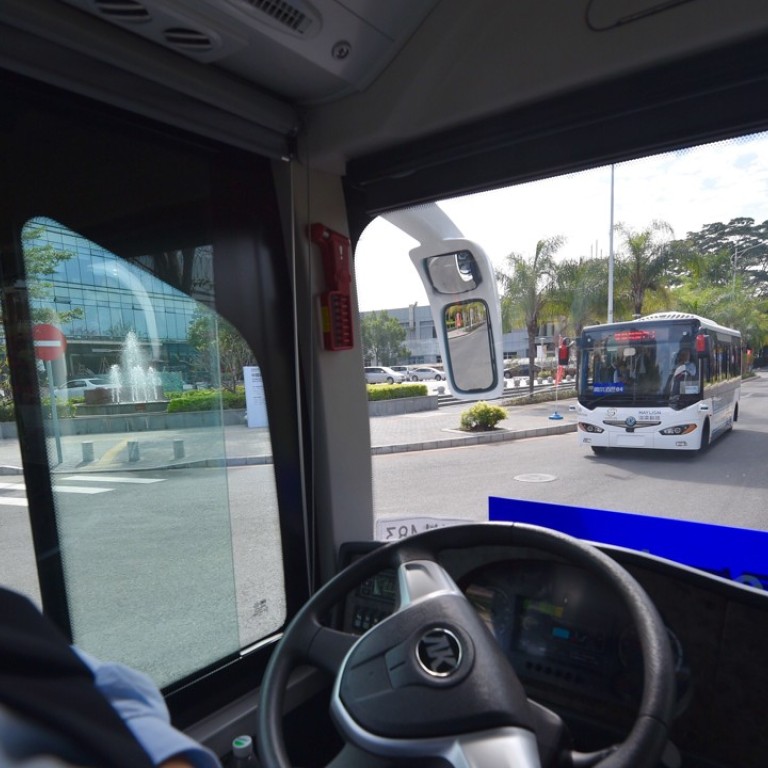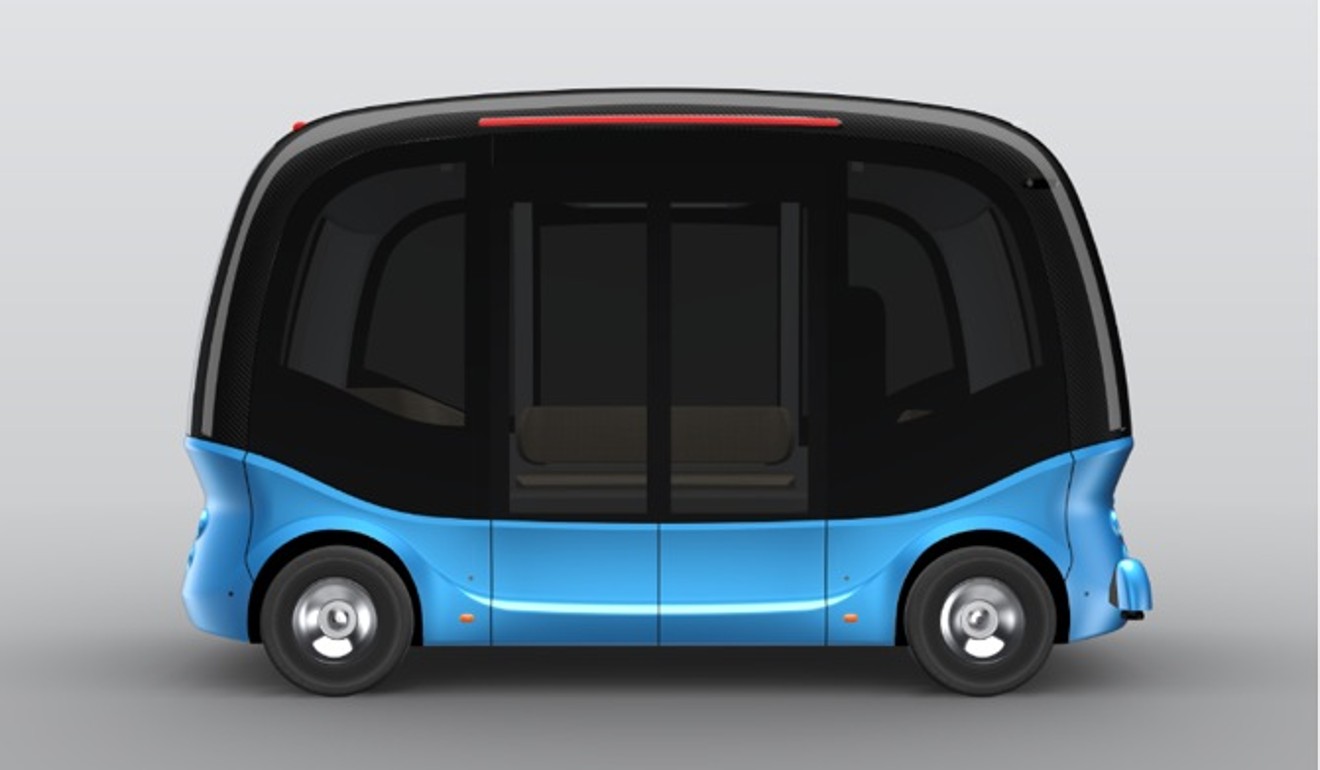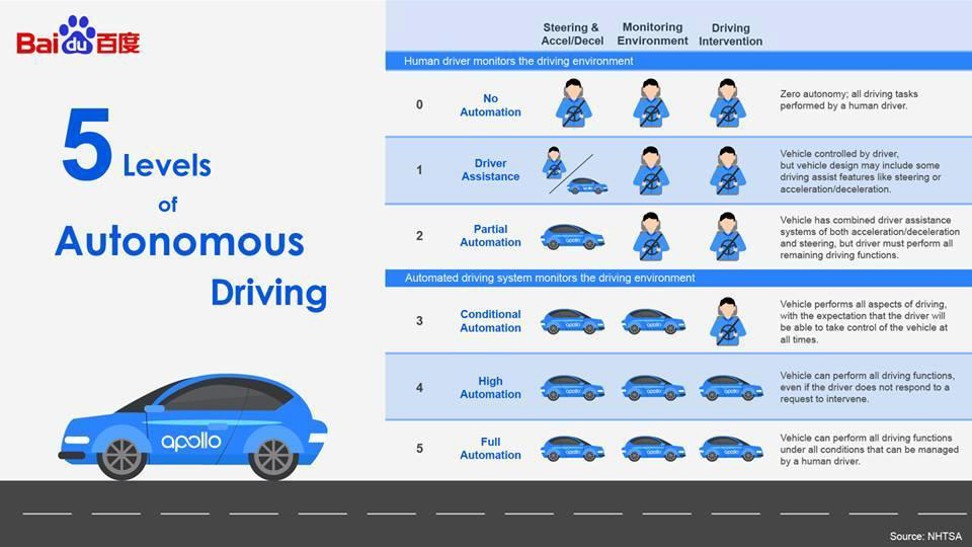
Shenzhen bus operator joins Baidu, Google in autonomous driving race with public trial
China, the world’s biggest vehicle market, has targeted up to 20 per cent of its cars on the road to be highly autonomous by 2025, and for 10 per cent of cars to be fully self-driving by 2030
Shenzhen, the southern coastal Chinese city that is home to some of the world’s biggest technology companies, is heating up the global race for autonomous driving as the site for the country’s first trial of self-driving buses on public roads.
Public transit operator Shenzhen Bus Group has started testing four self-driving buses, equipped with software and sensors from Chinese firm Haylion Technologies, on a 1.2km loop in the city’s Futian district.
Shenzhen Bus has made its foray into the autonomous market amid China’s bid to become a leader in this technology.
China, the world’s biggest vehicle market, has targeted up to 20 per cent of its cars on the road to be highly autonomous by 2025, and for 10 per cent of cars to be fully self-driving by 2030.
Ma said there are plans to expand the company’s trial to more areas in Shenzhen, but these would be confined to roads with less traffic and fewer pedestrians.
“The main advantage of driverless buses is increased safety,” said Ma.
Human error is a major cause of road accidents worldwide. There have been about 260,000 road fatalities each year in China, according to a World Health Organisation estimate published in May last year.
For the Shenzhen Bus trial, a human driver is stationed at the steering wheel, ready to take over if the vehicle encountered a situation that it cannot automatically handle.
In a recent demonstration, the bus was able to run smoothly on the road without human intervention. It sped up and slowed down, made turns, avoided pedestrians, navigated traffic lights and make an emergency stop.
Each self-driving bus was equipped with a range of active safety features, including lasers, radar, sensors and a visual scanning system that monitored the vehicle’s surroundings without any blind spot, according to Hu Jianping, the chairman at privately held Haylion.
Like electric cars and buses, which China have been actively promoting, self-driving vehicles are expected to be initially adopted by public transit operators on certain fixed routes.
Even if China’s laws allow for fully autonomous buses in future, a driver is still expected to be stationed on these vehicles, much like how automated high-speed trains have staff on-board to ensure the system runs smoothly, said Wu Zhengming, a partner of Frontt Capital Management, which focuses on the autonomous car industry.
Among the major Chinese technology companies working on self-driving vehicles, internet search engine operator Baidu has been investing the most aggressively, while forging key industry alliances.



